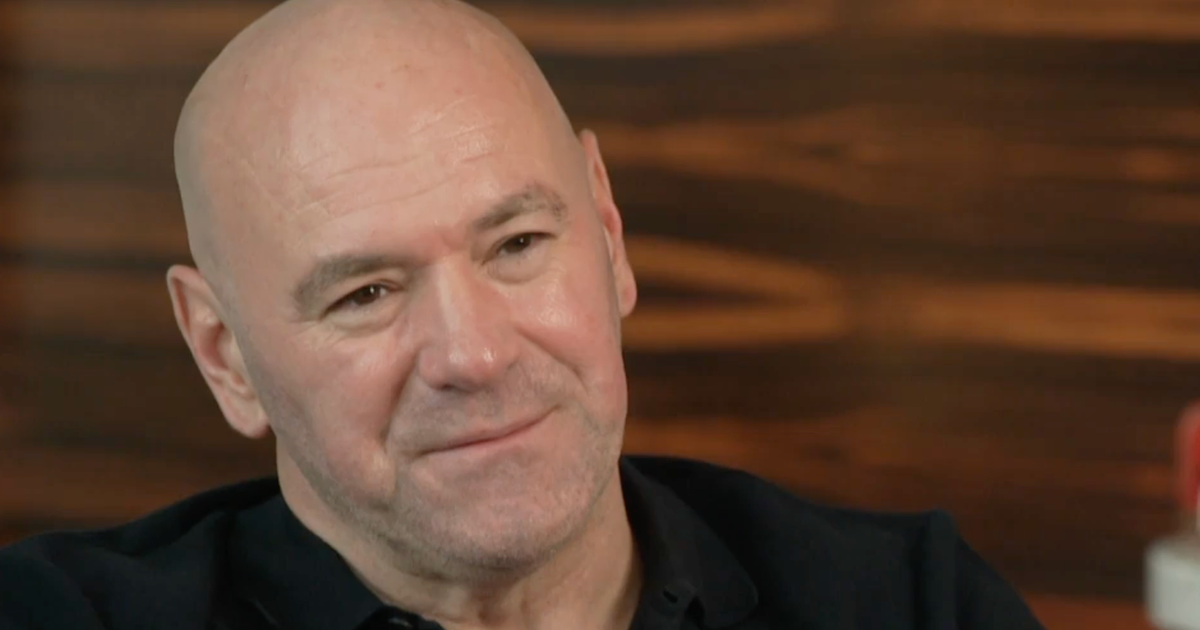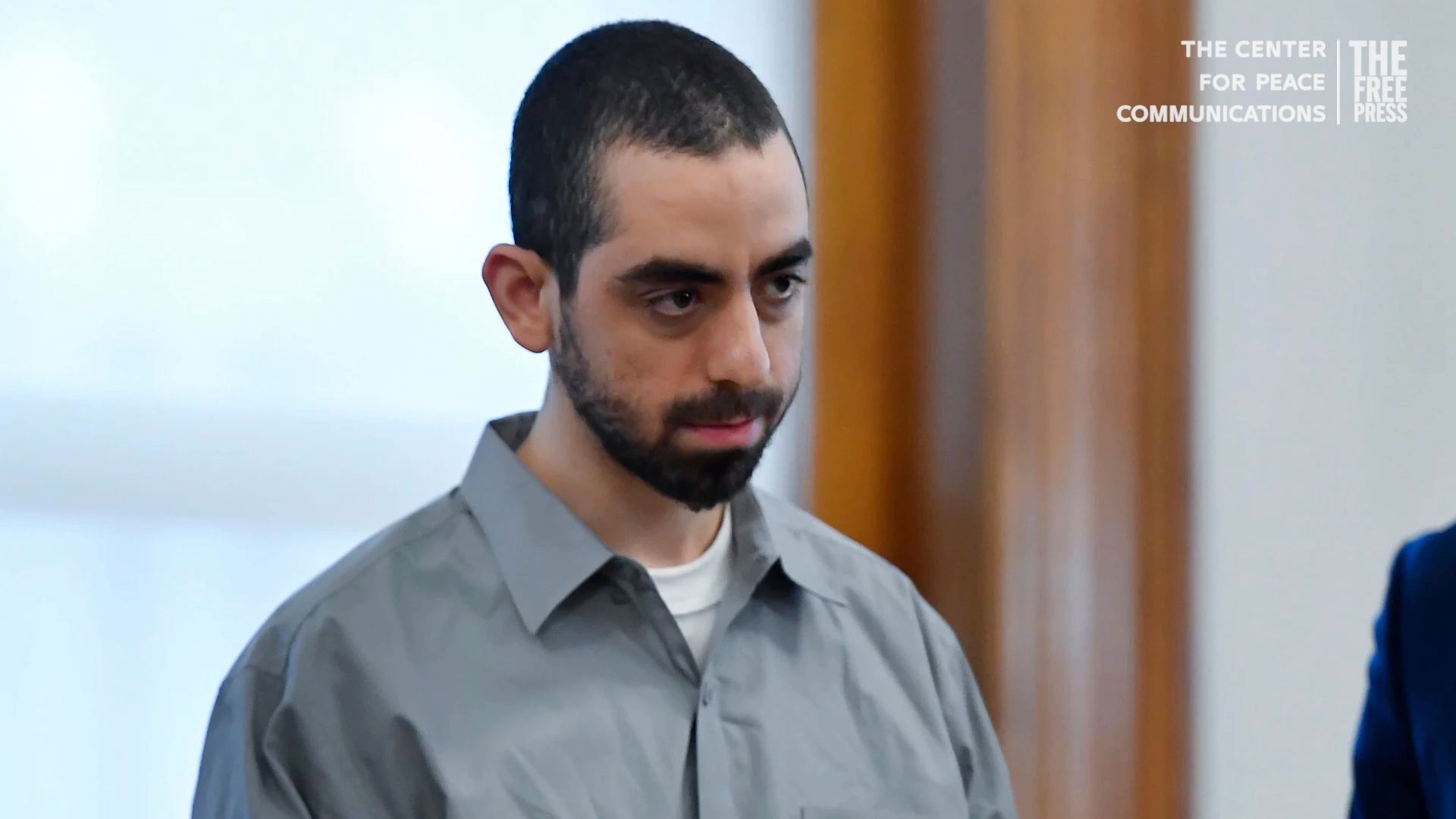Salman Rushdie: Happy to be back
As they enjoy a hot dog along the Coney Island boardwalk, author Salman Rushdie tells CBS News Sunday Morning correspondent Martha Teichner what it's like being a marked man, about life as a New Yorker and his cameo in a music video.
Salman Rushdie, the author of "The Satanic Verses," is alive and well. He lives in New York City now — no more bodyguards, no more Iraninan death threats.
"I'm just getting back to the ordinary business of being a writer and very happy to be there, because that's all I ever wanted," said Rushdie.
Today, Rushdie feels safe walking the streets of a city where not so long ago, the battle over his book threatened his life. Muslim fundamentalist were convince "The Satanic Verses" insulted Islam. They supported the Ayatollah Khomeini's 1989 edict, or fatwa, ordering Rushdie to be killed. Finally in 1998, Iranian government officials made a deal - a reprieve for Rushdie in exchange for restored diplomatic relations with Great Britain.
After nine years as the object of a religious wrath, Salman Rushdie has a unique understanding of the Sept. 11 attacks on the United States.
"I'm very interested that in this year that's elapsed, not just that people have rebounded emotionally from it, but that they've learned… what I've always thought to be the most important lesson of how you combat terrorism, which is that you do not become terrified." Said Rushdie. "Because of the accidents of my life, I had some personal lived information about this kind of thing, which I guess gave me some tools with which to confront it."
He believes it is a battle within the Islamic faith over freedom of thought — a battle being fought out all over the world.
"I noticed after Sept. 11, how many people were trying very hard to say it had nothing to do with religion… not about Islam, they said. It was about something else," he said. "Well, no it wasn't about Disneyland, you know. It wasn't about chess. Of course it was about Islam. It was about an unpleasant and fanatical reading of Islam, but to say it wasn't about Islam was just to miss the point of it."
In his new book in the last two essays, Rushdie writes that "religion is the poison of the blood." It is a pretty strong statement, says Martha Teichner — especially for a time where planes are used to ram into buildings or children burned alive in Gujarat, India in the name of religion.
"Like every writer in the world, I am trying to find a way of writing after Sept. 11, a day that has become something like a borderline... not only because the attacks were a kind of invasion, but because we all crossed a frontier that day, an invisible boundary between the imaginable and the unimaginable," explained Rushdie. "And it turned out to be the unimaginable that was real."
Rushdie's new book, just out, is a collection of essays and journalism. It takes it's title, "Step Across This Line," from a series of lectures Rushdie gave at Yale University in February. It's about frontiers — metaphorical as well as actual physical boundaries and crossing them. Something Salman Rushdie knows about.
"The real fact of my life has to do with migration," said Rushdie. "It has to do with moving from one place to another and facing the consequences of that kind of move, you know. And, I think my writing's been about that."
Walking in Coney Island, Brooklyn, Rushdie says he was pulled to New York because he felt it was the center of what's happening.
As soon as Rushdie moved to New York in 1999, he wrote, "Fury," a comic novel about a slightly Rushdie-esque Indian who, like his creator moves from England to New York at that amazing moment, just before the bubble bursts.
The sense of infinite wealth and infinite possibility was already running out in America. The city wasn't boiling with money as it was in the late '90s.
"The job is just to be receptive, you know — to little things as well as big, because you know, I've always been a sucker for the popular culture of life," said Rushdie.
Martha Teichner says they were looking for a cultural hodge-podge that attracted Rushdie to New York City. They ended up at Coney Island, where he'd taken his five-year-old son the week before.
Rushdie's parents were Muslims — affluent, cosmopolitian, and not very observant Muslims. But they were concerned enough about the threat of persecution in a largely Hindu country that they moved from New Delhi to Bombay, because it was the most tolerant city in India. When Salman Rushdie was 13, he was sent away to boarding school in England.
He became fascinated with rock 'n' roll. It moved him to a strange place thousands of miles from his home that gave him the subject matter for all twelve of his books, and a life-long love affair.
"We all got got Elvis the same time as you did," explained Rushdie. "So when you're 9 years old, you're sitting in Bombay listening to "Rock Around the Clock." One of the things that's really interesting about rock and roll music is that it really was the world's first globalized cultural phenomenon."
It gave his stories a soundtrack, literally, in the case of "The Ground Beneath Her Feet," which was published in 1999. It's a rock-n-roll epic. So, Salman Rushdie writes the words to a song for one of his rock-star main characters. Then, Bono of U2 writes the music. Then he found himself in the video.
"He'd rung me up and he said he'd written this tune and he really liked it," recalled Rushdie. "And then, I actualy went to Dublin and he was quite nervous. So, he made me go sit in his car, so nobody else was there. And played it to me on the... Bono's car, you know, sound system is not like the system in your car. And fortunately I liked it right away."
Just as fiction can turn into fact for Rushdie, fact can turn into fiction. He plays his literary celebrity self in the film "Bridget Jones' Diary" at Cambridge University. He did more acting than writing.
But he's willing to leave movies to his actress, model, and former cook-show host girlfriend, Padma Lakshmi, whose American debut was in "Glitter," starring Mariah Carey.
"She's got talents that I don't have… I mean she's just wrapped another movie, you know," said Rushdie laughing. "She's got a career in movies, I don't. On the other hand, I'm entirely open to offers."
He's happy to be happy now. He's happy after three failed marriages and after painful separations from his children. He's happy to relegate the Fatwa and the damage it did to another time, another place — happy to be known for who he really is and what his books are actually like.
"It was to me the worst damage of the whole thing," said Rushdie. "I mean that people thought of me as something other than what I was like ... It was a dark, unfunny, kind of obscure theological thing that … people think I must be a dark, unfunny, obscure theological person. I'm not, I'm like this (laughter)."
Some may believe Rushdie became a celebrity because of the threats to his life. But he says he was an extremely well known writer for 10 years before the threat to his life. He believes that he wasn't invented by the fatwah.
"'The Satanic Verses' was my fifth book," explained Rushdie. "I mean to be famous for the wrong thing is a terrible fate, you know. And you spend, .I mean, I've now spent a dozen years of my life trying to climb out from under that… I'd be quite happy to be less famous for the right thing."
Salman Rushdie has a lot in common with the city he has chosen for his latest migration. He's lived its worst nightmare. This is how he ends his new book: "Will we become the suits of armor our fear makes us put on, or will we continue to be ourselves, the frontier both shapes our character and tests our mettle. I hope we pass the test."



